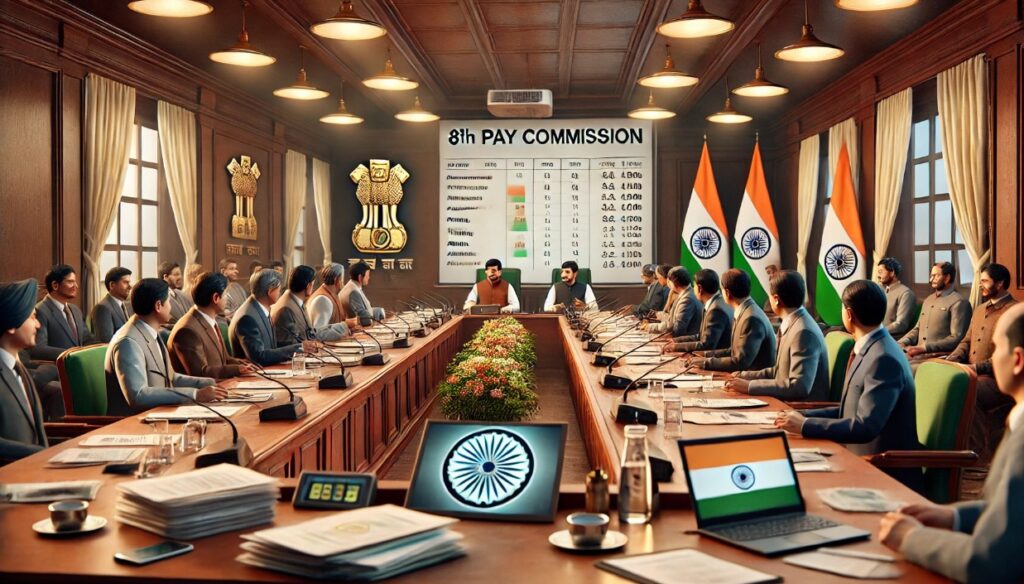Read in Hindi
The 8th Pay Commission (8th Central Pay Commission) in India is expected to bring significant changes to the lives of central government employees and pensioners. This initiative aims to revise salary structures, allowances, and pensions to meet modern economic demands. In this blog, we explore all aspects of the 8th Pay Commission, including its history, process, potential benefits, and challenges.

History and Importance of Pay Commissions
The first Pay Commission was constituted in 1946. Since then, seven commissions have been implemented, each playing a crucial role in improving the quality of life for government employees and pensioners.
| Pay Commission | Year | Minimum Salary Increment |
|---|---|---|
| First Pay Commission | 1946 | From ₹55 to ₹80 |
| Second Pay Commission | 1959 | Approx. 75% increase |
| Third Pay Commission | 1973 | Minimum salary ₹185 |
| Fourth Pay Commission | 1986 | Minimum salary ₹750 |
| Fifth Pay Commission | 1996 | Minimum salary ₹2,550 |
| Sixth Pay Commission | 2006 | Minimum salary ₹7,000 |
| Seventh Pay Commission | 2016 | Minimum salary ₹18,000 |
| Eighth Pay Commission | 2025 (Proposed) | Minimum salary ₹51,480 |
Each commission has considered inflation and living costs to recommend salary structures that align with economic realities.
Process and Recommendations of the 8th Pay Commission
- Formation and Data Collection:
- A team of experts will be set up by the central government to analyze data from employees, pensioners, and associations.
- Recommendations:
- Proposed increase in minimum salary from ₹18,000 to ₹51,480.
- Pension improvements: Minimum pension likely to increase from ₹9,000 to ₹25,740.
- Implementation of a fitment factor of 2.86.
- Implementation:
- Recommendations are reviewed by the government and implemented in phases.
Who Will Benefit from the 8th Pay Commission?
- Central Government Employees:
- Millions of employees working across ministries and departments.
- Pensioners:
- Retired government employees who depend on pensions.
- State Government Employees:
- Many state governments adopt the recommendations of the central Pay Commission.
- Contract Employees:
- In certain cases, contract workers also benefit from revised allowances.
Potential Impacts
- Economic Growth:
- Increased salaries are expected to boost consumption, contributing to economic expansion.
- Improved Living Standards:
- Revised salary structures will enhance the quality of life for employees and their families.
- Higher Savings and Investments:
- Additional income will allow employees to save and invest more.
Challenges and Solutions
Challenges:
- Financial pressure on the government budget.
- Disparity among employees at different levels.
Solutions:
- Gradual implementation of recommendations.
- Balanced policies to manage economic constraints.
Conclusion
The 8th Pay Commission 2025 is a major step toward improving the financial stability and living standards of government employees and pensioners. Its recommendations are expected to bring positive changes not only for individuals but also for the nation’s economy. This commission will serve as a critical initiative for ensuring equitable and modernized compensation structures.
Your Opinion: Do you have questions or suggestions about the 8th Pay Commission? Share your thoughts in the comments below!
